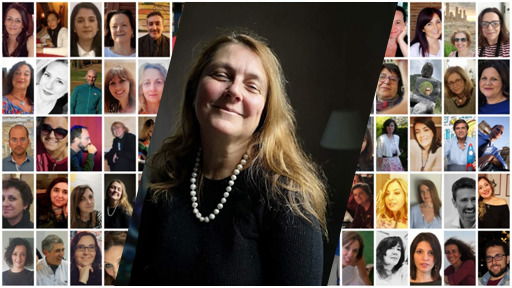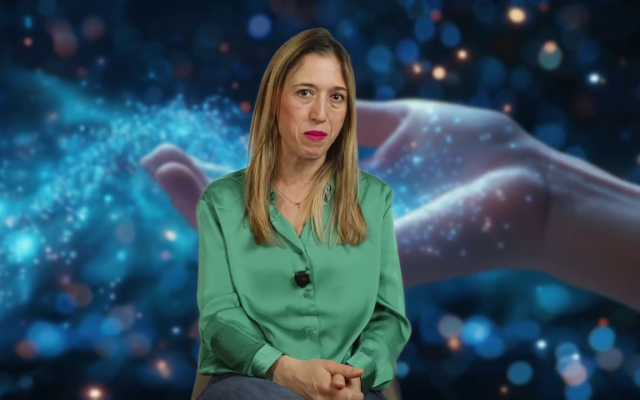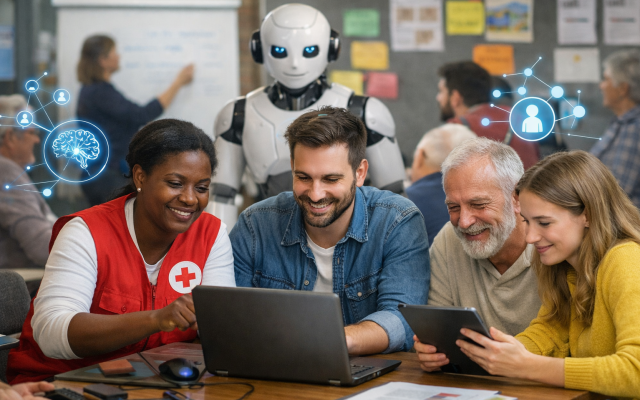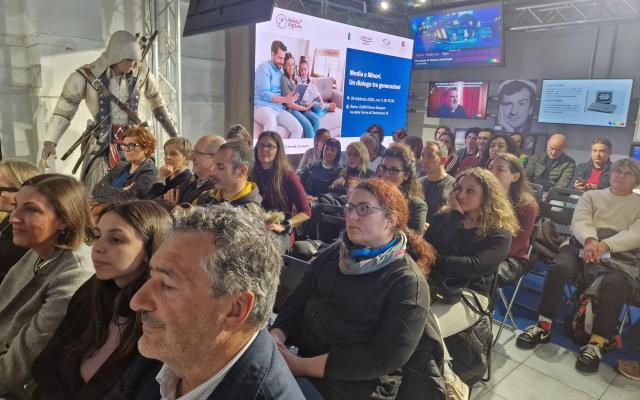In our tenth weekly instalment of interviews with teachers participating in the “Our School” Project, we meet Manuela Fiore, who became a computer science professor after a short stint in the ICT sector. As usual, we share a short presentation video and then an interview with Ilaria Gaudiello.
 Manuela Fiore is a Professor of Computer Science at a second-degree secondary school and an educator in the digital pedagogical innovation sector. She uses and promotes the application of the Python programming language to various educational ends. She is curious and likes to experiment and became a teacher after a long and interesting career in IT companies. She aims to promote professionalisation and a continuous updating of skills and knowledge. She also is very interested in human-machine interaction and behavioural studies in terms of modelling and forecasting.
Manuela Fiore is a Professor of Computer Science at a second-degree secondary school and an educator in the digital pedagogical innovation sector. She uses and promotes the application of the Python programming language to various educational ends. She is curious and likes to experiment and became a teacher after a long and interesting career in IT companies. She aims to promote professionalisation and a continuous updating of skills and knowledge. She also is very interested in human-machine interaction and behavioural studies in terms of modelling and forecasting.

INTERVIEW
Manuela, as a teacher you are exploiting everything you learnt in the IT business sector. How do your didactic projects help students to understand the working world and invest in such a technical and complex subject?
Computer science is a complex subject that requires a marked ability for absraction. At times, it’s also difficult to understand for sector experts, not just high school students! This is why it must be applied to concrete projects that mirror reality and have a focus on the continuous innovation of available tools. As in Physics, which observes that which occurs in the world, computer science is interesting when used to reproduce and resolve issues we encounter in everyday life. Facing a complex situation by implementing computer technology allows students to gain confidence. It allows them to resolve problems independently. The satisfaction of seeing something you have coded work is fundamental to drive learning. Moreover, this process drives a series of soft skills (problem solving, team working) that are sought out be companies. Thus, once they have completed their studies, students will already have a significant set of skills.
Together with Grey Panthers, the Grey Age Portal, you won a project employing technology to help elders with economic transactions. Can you tell us something more about this?
I have been working with www.grey-panthers.it for a number of years to develop a PCTO project to allow students to help over-60s with digital tools. It’s a sort of on-line helpdesk that allows users to interact with students and request IT support and explanations (PCs, smartphones, tablets, e-mail, etc.). This year, we decided to present a project aiming to reduce the generational gap in the financial sector, addressing issues related to home banking, credit cards, cryptocurrency, e-payments, etc. These are applications that often generate issues - especially during the current pandemic – and worry elders keeping them from independently completing tasks due to technical difficulties. We presented our project to the Assinform National Digital Innovation Award 2021 and won! The project is currently underway. The students have been trained and, on March 22, the portal will provide the first lesson on home banking and digital currency. Clearly, the course will be held by students! The students love this project and love the feeling of teaching. And the elders are happy, too, as they develop great relations with the students, very similar to those between grandparents and grandchildren!
Your active participation in the Fondazione Mondo Digitale’s “Our School” entails creative collaboration in an interesting course on coding and bio-robotics. How does this course merge with civic education?
Project PRob is based on coding and bio-robotics to allow students to understand how the world of robotics works as an aide to mankind. As I mentioned earlier, computer science becomes interesting when we consider its application to the real world. And this is exactly what the course does.
We studied various contexts in which robotics is employed and discussed how these uses promote human activity and impact the working world. Then we asked ourselves: “Will robots really take jobs away from humans?” We debated this issue from several different points of view, also in comparison to the current job market. We also investigated the objectives of artificial intelligence and came up with some interesting answers, as well as a few sceptical and extremely cautious ones. Robotics and AI are directly related to civic education and provide ideas to reflect on that address the environment, social behaviour and regulations.



